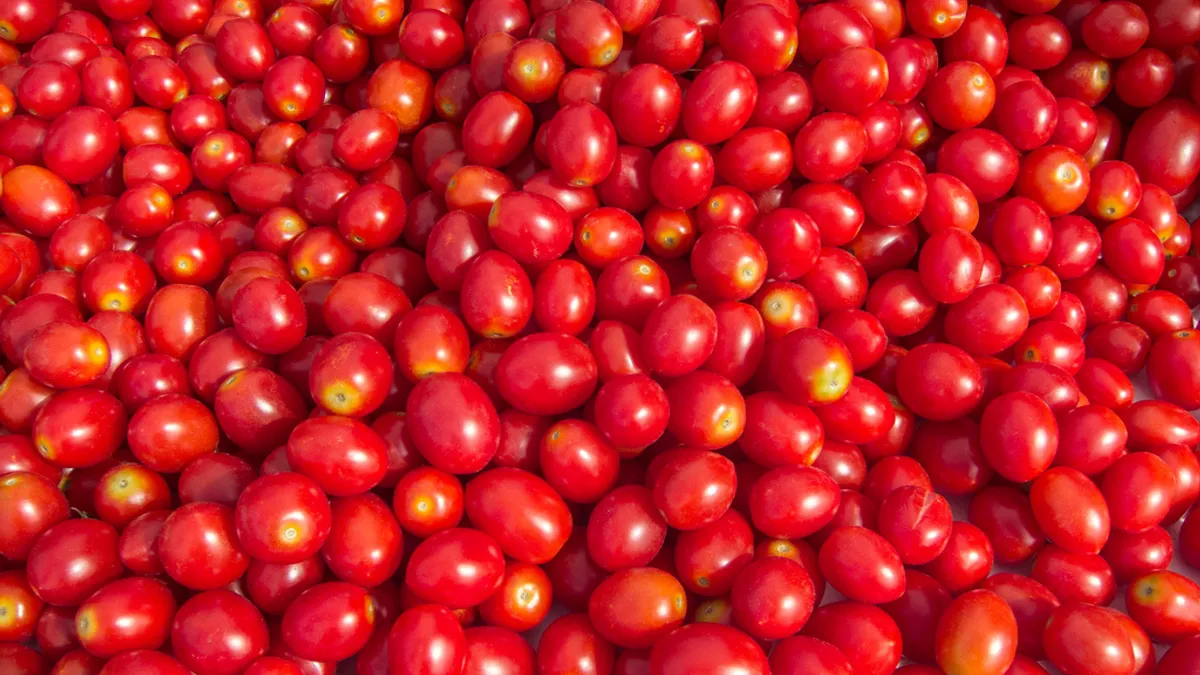Dive Brief:
- U.S. and Mexican authorities approved an agreement Tuesday that, if signed, will suspend the U.S. Department of Commerce's anti-dumping investigation regarding fresh or chilled Mexican tomatoes, and a 17.5% tariff in place since May, according to a press release from the Commerce Department.
- The new agreement includes provisions that "completely eliminate the injurious effects of Mexican tomatoes, as well as price suppression and undercutting" while closing "loopholes from past suspension agreements that permitted sales below the reference prices," according to the release. Furthermore, the agreement includes a new inspection process to keep low-quality tomatoes out of the U.S. market.
- After a 30-day waiting period, the parties will sign the final agreement on Sept. 19 when the investigation will be officially suspended without issuing any final results.
Dive Insight:
The anti-dumping investigation resumed in May when the Commerce Department formally terminated the 2013 Suspension Agreement on Fresh Tomatoes from Mexico, triggering the tariff. This week, "After intensive discussions with all parties, we initialed a new draft suspension agreement with the Mexican growers late last night. This draft agreement meets the needs of both sides and avoids the need for anti-dumping duties,” Secretary of Commerce Wilbur Ross said in a statement.
The competition between U.S. and Mexican tomato growers has created tension among U.S. stakeholders as many tomato purchasers — restaurants and food service organizations, for example — decried the loss of cheaper Mexican tomatoes back in February when the Commerce gave notice it intended to withdraw from the agreement.
Sen. Marco Rubio, R-Fla., and Rep. Ted Yoho, R-Fla., who supported the move to protect Florida farmers then, expressed satisfaction with this week's announcement, adding a stern tone regarding further enforcement.
"During the ninety day notice period, I urge the Department to carefully monitor Mexican tomato imports and to take action to terminate the agreement prior to May 7th should such action be warranted," said Rubio in a statement. Rubio and Yoho have been on the side of Florida tomato growers throughout the debate.
The importers and buyers of Mexican tomatoes are also supportive of the deal, with some wariness.
“As we and our colleagues in the trade community have made clear, imposing duties on fresh tomato imports would not only have hurt U.S. consumers in the pocketbook, but it would have run completely counter to the spirit of binational cooperation imbued in NAFTA and now the USMCA, and would have severely complicated the new agreement’s fate on Capitol Hill," said Border Trade Alliance President Britton Clarke, cautioning that the new inspection process may slow down border transit. "We will examine any new inspection mandate closely," she said.
The Fresh Produce Association of the Americas (FPAA), while also "gratified" by the agreement, expressed concern that the inspection provisions "will snarl border traffic and damage [the] U.S. tomato market." The FPAA claimed in its statement the provisions allow the inspection of up to 92% of all lots of tomatoes crossing the border from Mexico into the U.S.
The issue demonstrates another way the Trump Administration has influenced trade across the southern border without needing to change trade policy according to the organization – through actions that influence border traffic.
"The inspection provision is essentially a non-tariff trade barrier whose ripple effects will not only damage the U.S. tomato market but many other industries that trade with Mexico,” said Lance Jungmeyer, President of the FPAA.














